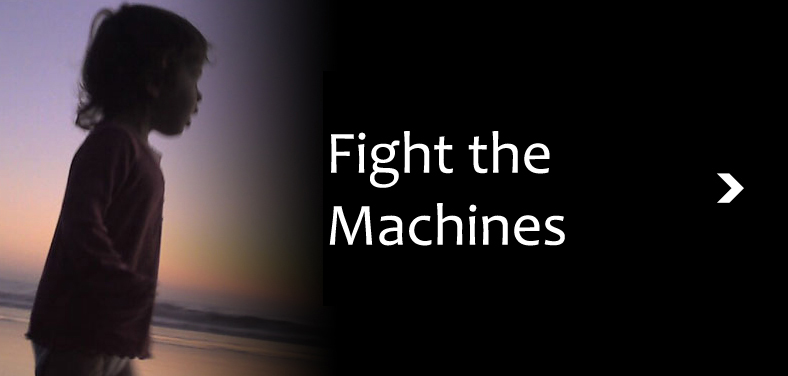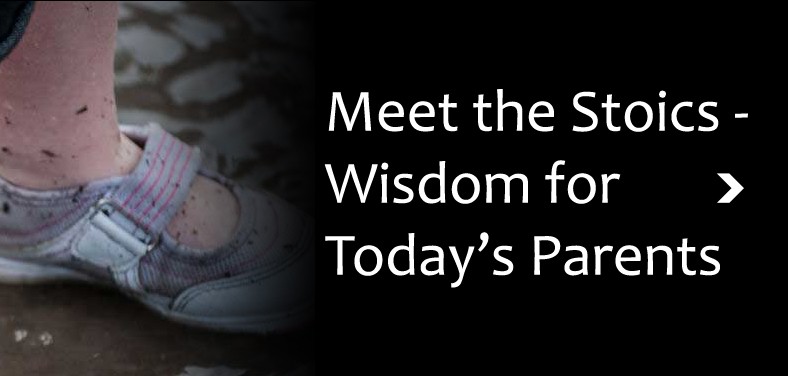Supporting a Growth Mindset through Observation, not Judgement
You love your kid. She’s awesome. So what’s the problem with telling her?
Some types of praise can have a negative effect on young children: like every other parenting habit, it’s important to see the situation from the child’s point of view, and to look at the long-term big picture of your child assembling a “self.”
Parental speech creates the child’s environment – so what happens when the idea “I am smart – or so I’m told” runs up against a problem that is not easy to solve? Many kinds of praise create the idea of a fixed quantity of an attribute, or of that attribute being the only remedy to solving a problem. So, when you are told you have a gift, and that gift isn’t enough to solve a problem, what do you do?
Experts say it’s helpful to praise your child’s effort, or his process, not her results. It does a child no favors to praise her natural talents, god-given skills, or to label her, by saying she is “smart” or “fast” or “a good artist” or whatever. You want to share your observations of what your child does, but not to judge. It’s more important to be a mirror (to reflect) than to evaluate. So, for example, better to say “You are juggling chainsaws while balancing on the back of the dog,” instead of “Good Job!” Self-confidence comes from within – from the experience of working to solve problems in “the real world” of the child’s environment.
Young children learn about themselves from what their parents say, but learn even more from their experience. Parents can amplify how their children learn from experience by reflecting or reinforcing how the environment responds to the child. So, when speaking with your child about their actions, it’s a good idea to minimize judgement, both positive and negative, and instead share observations, or simply acknowledge your child’s efforts. This allows your child to learn from his experience, and to develop an “internal compass” to evaluate the way his actions, and efforts, play out in “the real world” of his environment. Not judging gets you out of the interpretation business: teaching a child to always think “Will this please my parents?” does not promote sustainable long-term mental health. What happens if mom and dad keep saying “you are good at math” and then the child meets a math problem they can’t do? The more resilient child’s parents’ message is more likely to be “we noticed that when you got stuck, you kept trying, until you solved the problem.”
Below are some examples of Judgement vs. Observation. Use your ability to imagine your child’s experience to see what she or he would take away from each statement, and consider how robust and ultimately helpful that “take away” would be. How will the child use the information content of the parent’s comment?
Judgement: “You are good at math”
Observation: “You completed our family’s tax returns with a crayon in 15 minutes. Last year, it took your father 2 weeks.”
Judgement: “You are a good kid – you were kind to share the truck with Susan.”
Observation: “I saw Susan smile when you gave her the truck.”
Judgement: “You are mean – you hurt me by throwing my phone in the toilet. You are an evil, evil child.”
Observation: “You were holding my phone and now it is in the toilet. Now I am upset, and we need to change our plans for the day.”
Judgement: “Your hug made grandma happy. You are such a great kid – you are cute and loveable.”
Observation: “You hugged grandma – and she gave a big smile. I think it made her feel good.”
The article “The Inverse Power of Praise” by Po Bronson and Ashleigh Merriman gives background on some relevant studies in this area, including earlier work by Carol Dweck, the researcher who identified “Growth Mindset,” as a key to long-term happiness and success. Dweck says you can lump people in two groups: those with a “fixed mindset,” who believe that abilities are mostly innate and interpret failure as the lack of necessary basic talents, and those with a “growth mindset,” who believe that they can acquire any given ability … if they invest enough effort. Dweck says that the growth mindset “will allow a person to live a less stressful and more successful life.”
From Bronson and Merriman’s summary of the research:
- When things don’t come easily to kids who get lots of praise, they are more likely to think “I am not very good at this” and give up.
- Highly praised kids will overestimate the extent they need parental support, and underestimate the importance of personal effort.
- In Carol Dweck’s first major study, kids who had been working on a problem set were told either “You must be smart at this” or “You must have worked really hard.” Given a second more challenging set of problems, the kids praised for effort attempted to figure the problems out, while the ones praised for being smart quit.
- Kids praised for intelligence, and to an extent, outcomes, are effectively being told “looking smart and getting ‘wins’ is the name of the game” – which leads to risk-aversion. The ability to take on and manage risks, and to recover and persevere when things go wrong, are essential to happiness and productivity.
- “Emphasizing effort gives a child a variable that they can control,” says Dweck. “They come to see themselves as in control of their success. Emphasizing natural intelligence takes it out of the child’s control, and it provides no good recipe for responding to a failure.”
- When you praise your kids’ natural talent, it’s not that far from praising yourself.
- If that isn’t enough: “Dweck’s research on overpraised kids strongly suggests that image maintenance becomes their primary concern—they are more competitive and more interested in tearing others down.”
- Students turn to cheating when they haven’t developed a strategy for handling failure. The problem is compounded when a parent ignores a child’s failures and insists he’ll do better next time.
- A simple way to share this idea with kids is to say that the brain is a muscle, and giving it a harder workout makes you smarter.
- Praise – or positive observations, need to be specific and fact-based, rather than judgements. They need to be borne out by the information the child is getting from his environment. “You stacked up all of those blocks” is better than “You are a good block stacker.”
- Praise for basic abilities can increase self-doubt. Psychologist Wulf-Uwe Meyer conducted a series of studies where children watched other students receive praise. According to Meyer’s findings, by the age of 12, children believe that earning praise from a teacher is not a sign you did well—it’s actually a sign you lack ability and the teacher thinks you need extra encouragement. And teens, Meyer found, discounted praise to such an extent that they believed it’s a teacher’s criticism—not praise at all—that really conveys a positive belief in a student’s aptitude.
- A child deprived of the opportunity to discuss mistakes can’t learn from them.
- .. the ability to repeatedly respond to failure by exerting more effort has been well-studied – whether called “grit” or “resilience, it is central to most measures of “success.”
- “The key is intermittent reinforcement,” says a researcher named Cloninger. The brain has to learn that frustrating spells can be worked through. In other words, sometimes trying again works, sometimes it doesn’t.
- Bronson recognized that praising his son with the universal “You’re great—I’m proud of you” was a way to express unconditional love, and was partly related to his guilt from being away from his son all day. We praise naturally because we want to love – it is a way to “treat” the parent’s emotional need.
- When parents evaluate their children’s efforts – by jumping in with praise, spin, or analysis – it denies the child the chance to figure it out themselves. This “jumping in” to help solve “how am I doing on this?” is just like jumping in too soon to help solve any other problems.
Think of your own personal experience. When you are good at something, you have your own personal (high) standards. Similarly, when you are just learning something new, you accept lesser results as you are learning. Think of types of praise you receive for your natural abilities … if you are like most people, this sort of praise can often feel hollow, because the person doing the praising doesn’t really know of your challenges, your abilities, and your journey to get to this point. They just don’t get it the way you do – but that they’ve noticed what you’ve done is meaningful.
As you know if you’ve poked around on this blog, I am a big fan of the Roman Stoics – and here is what they said about praise:
- Marcus Arulius (Book VI – #20): Whatever is good has that quality from itself; it is finished by its own nature, and commendation (Praise) is no part of it. A thing is neither better nor worse for being praised. …. Do any Good Things stand in need of a good word, or are they the worse for a bad one? I hope an emerald will shine nevertheless for a man’s being silent about the worth of it. Neither is there any necessity of praising gold, ivory, purple, a lyre, a dagger, a little flower, or a shrub.
- Epictetus (Enchideron: ) The condition and characteristic of a vulgar person, is, that he never expects either benefit or hurt from himself, but from externals …The marks of a proficient are, that he censures no one, praises no one, blames no one, accuses no one, says nothing concerning himself as being anybody, or knowing anything: when he is, in any instance, hindered or restrained, he accuses himself; and, if he is praised, he secretly laughs at the person who praises him; and, if he is censured, he makes no defense.
Summary:
General praise can be a problem, and is not the panacea it was recently thought to be. Quick tips: 1) praise effort, not results; and 2) notice your children, don’t evaluate. Minimize all levels of judgement – both positive and negative – by simply communicating what you observe. There is no need to praise an infant for sitting up, nor reprimand her for taking a toy from another child. These are just things that babies do. They need not be judged, but can be acknowledged.
Remember, you child is always watching you – like it or not – and you can model appreciation and gracious acceptance of things as they are any time – they are so full of curiosity and the joy of discovery – feel free to give some back.




Add comment